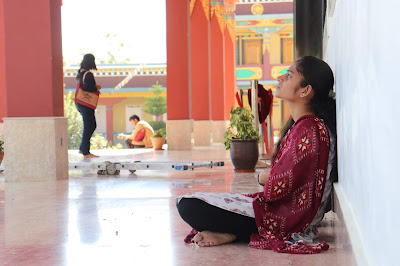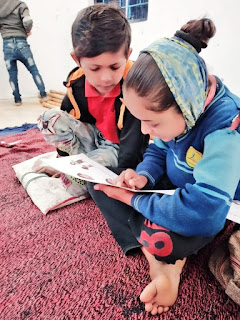What it means to connect with the 'self'!
Humans have bodies. During the century technology has been distancing us from our bodies. We have been losing our ability to pay attention to what we smell and taste. Instead, we are absorbed in our smartphones and computers. We are more interested in what is happening in cyberspace than in what is happening down the street. It is easier than ever to talk to my cousin in Switzerland, but it is harder to talk to my husband over breakfast because he constantly looks at his smartphone instead of at me.
In the past, humans could not afford such carelessness. Ancient foragers were always alert and attentive. Wandering in the forest in search of mushrooms, they watched the ground for any telltale bulge. They listened to the slightest movement in the grass to learn whether a snake might be lurking there. When they found an edible mushroom, they ate it with the utmost attention to distinguish it from its poisonous cousins. Members of today's affluent societies don't need such keen awareness. We can wander between the supermarket aisles while texting message, and we can buy any of a thousand dishes, all supervisor by the health authorities. But whatever we choose, we might end up eating it enhanced in front of a screen, checking emails or watching television, while hardly paying attention to the actual taste.
Zuckerberg says that Facebook is committed 'to continue improving our tools to give you the power to share your experience' with others. Yet what people might really need are the tools to connect to their experiences. In the name of 'sharing experiences', people are encouraged to understand what happens to them in terms of how others see it. If something exciting happens, the gut Instinct of Facebook users is to pull out their smartphones, take a picture, post it online, and wait for the 'likes' in the process the barely notice what they themselves feel. Indeed, what they feel is increasingly determined by the online reactions
People are estranged from their bodies, senses and physical environment are likely to feel alienated and disoriented. Pundits often blame such feelings of alienation on the decline of religious and national bonds, but losing touch with your body is probably more important. Humans lived for millions of years without religions and without nations - they can probably live happily without them in the 21st century, too. Yet they cannot live happily if they are disconnected from there bodies. If you don't feel at home in your body, you will never feel at home in the world.
- Yuval Noah Harari in the book 21 LESSONS FOR THE 21ST CENTURY.




Comments
Post a Comment